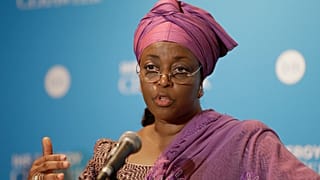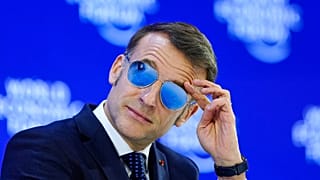France
European Union Commission President Ursula Von Der Leyen has announced a €1 billion investment plan to protect oceans and support coastal communities and fisheries.
"There is a funding shortfall to support ocean conservation, to support ocean science, and sustainable fishing, she said.
Speaking at the United Nations ocean conservation summit in the French city of Nice on Monday, she said the funds will go to 50 different projects around the world.
Von Der Leyen said the bloc's new Ocean Pact aims to reduce plastic pollution, restore maritime ecosystems, renew an ageing fleet, and fight against illegal fishing.
"Europe is taking a zero tolerance approach to illegal practises, zero tolerance. We want to stop the criminals moving between neighbouring countries," she said.
She added that the EU will develop regional partnerships, in the Mediterranean, in Western Africa and in the Pacific.
“In Europe, we will use our digital registration of fish catches to help prevent illegally caught fish from coming into the European Union,” she said.
French President Emmanuel Macron, echoed similar sentiments, urging European countries especially to follow commitments being made to safeguard the oceans.
"We must protect our territorial waters and these maritime zones everywhere," he added.
The conference comes as just 2.7 per cent of the ocean is effectively protected from destructive extractive activities, according to the non-profit Marine Conservation Institute.
That is far below the target agreed under the “30x30” pledge within the Kunming-Montreal Global Biodiversity Framework to conserve at least 30 per cent of Earth's land and ocean areas by 2030.











01:38
Donald Trump's 'Board of Peace' launched amid fears it will rival UN
01:33
World court says atrocities spreading across Sudan's Darfur region
00:01
Uncertainty in Uvira as M23 rebels again announce withdrawal from eastern DRC city
01:22
Residents in the Sudanese capital welcome the government's return to the city
01:25
As Sudan marks 1,000 days of conflict, civilians continue to suffer
01:09
Trump orders US withdrawal from 66 international organisations under ‘America First’ policy